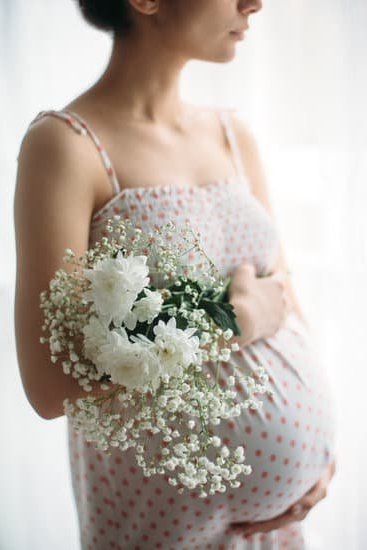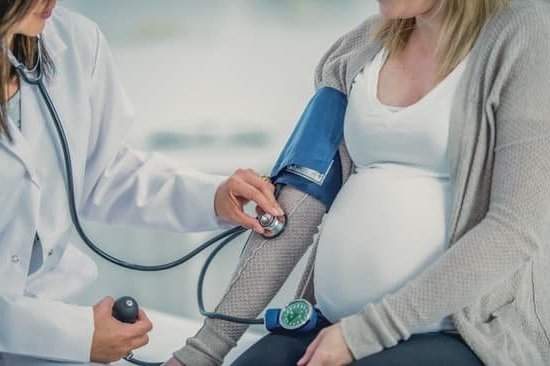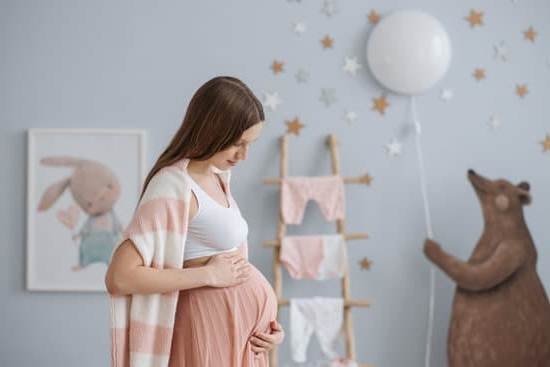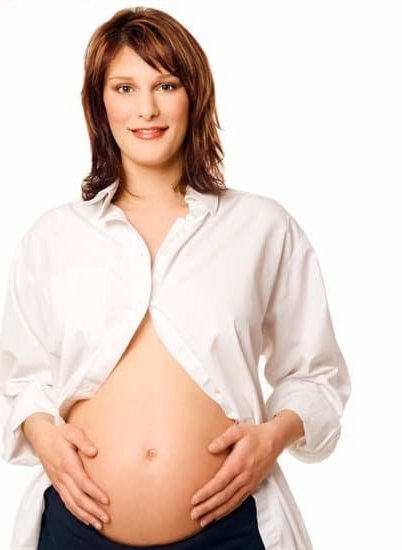Is horniness an early sign of pregnancy or period? Understanding the signs of pregnancy and the menstrual cycle is essential for women’s health and well-being. Many women experience changes in their sexual desire during different phases of their reproductive cycle, leading to questions about the role of horniness as a potential indicator of pregnancy or impending menstruation.
Horniness, or feeling sexually aroused, is a natural and common phenomenon experienced by individuals. It can be influenced by various factors, including hormonal fluctuations, emotional state, and physical well-being. Understanding why horniness occurs can provide valuable insight into its potential connection to pregnancy and the menstrual cycle.
In this article, we will explore the early signs of pregnancy and period, shedding light on whether horniness is one of them. Additionally, we will delve into the hormonal changes that occur during pregnancy and the menstrual cycle to understand how they may impact sexual desire. By addressing common misconceptions regarding horniness in relation to pregnancy and period, we aim to provide clarity on this complex topic for women seeking answers about their reproductive health.
What Is Horniness and Why Does It Occur?
Horniness, also known as sexual arousal, is the physiological and psychological state of being sexually receptive or desiring sexual activity. This can manifest in a variety of ways, including increased libido, heightened sensitivity to sexual stimuli, and an overall increase in sexual thoughts and fantasies.
There are several factors that can contribute to horniness, including hormonal changes, emotional factors, physical arousal, and environmental stimuli. Hormonally, the release of testosterone in both men and women plays a significant role in increasing libido. Emotional factors such as intimacy with a partner or feelings of attraction towards someone else can also contribute to feelings of horniness.
Physical arousal such as touch or visual stimulation can also trigger feelings of horniness. Additionally, environmental factors such as stress levels or exposure to erotic content can influence one’s level of horniness.
It’s important to note that individuals can experience variations in their level of horniness due to a combination of these factors. Each person may have a unique response to different stimuli and circumstances that may lead to fluctuations in their level of horniness at any given time.
This variation is normal and is not necessarily indicative of any underlying health condition. However, when considering whether horniness may be related to pregnancy or the menstrual cycle, it’s essential to understand how these factors come into play.
Hormonal Changes and Horniness
One key factor influencing horniness is hormonal changes within the body. During ovulation, which typically occurs around the middle of a woman’s menstrual cycle, there is a surge in estrogen levels which can lead to an increase in sexual desire for some women. Similarly during early pregnancy, there are significant hormonal shifts including increases in progesterone and estrogen levels which may also impact libido for some individuals.
However though testosterone often linked with horniness,isn’t just present on males; females give off this same hormone when they get excited because it induces dopamine production by exciting the pleasure centers.
Understanding these hormonal changes helps shed light on why some individuals may experience increased levels of horniness during certain times related to their menstrual cycle or early pregnancy but its crucial keepinig mind that every individual has a unique response hormonally so what might apply well for one does not always apply for most.
Early Signs of Pregnancy
At some point in a woman’s life, she may have wondered if her increased libido could be an early sign of pregnancy or just a premenstrual symptom. According to experts, this is a common concern among women, but the relationship between horniness and early pregnancy signs is not well-documented.
However, it is important to understand that every woman’s body is different, and there may be instances where heightened sexual desire could potentially be linked to early stages of pregnancy.
During the early stages of pregnancy, hormonal changes in a woman’s body can lead to an increase in blood flow to the pelvic region. This increased blood flow can result in heightened arousal and sexual desire for some women.
Additionally, changes in estrogen and progesterone levels during early pregnancy can also contribute to an increase in libido for some individuals. It’s essential to note that not all women experience these changes, and individual responses to hormonal fluctuations can vary widely.
Despite the potential link between horniness and early signs of pregnancy, it is essential for women to consider other symptoms as well when assessing whether they may be pregnant. A missed period, breast tenderness, nausea, fatigue, and frequent urination are among the more commonly recognized indicators of early pregnancy.
However, if you are experiencing an increase in horniness along with these other symptoms and suspect that you may be pregnant, it is advisable to seek guidance from a healthcare professional for further evaluation.
| Early Sign of Pregnancy | Related Information |
|---|---|
| Blood Flow Changes | Increased blood flow to the pelvic region may result in heightened arousal |
| Hormonal Fluctuations | Increase in estrogen and progesterone levels can contribute to higher libido for some women |
| Other Symptoms | A missed period, breast tenderness, nausea, fatigue are commonly recognized indicators of early pregnancy |
Early Signs of Period
When it comes to understanding the early signs of a period, many women may not realize that changes in horniness can be an indicator. Hormonal fluctuations throughout the menstrual cycle can have a significant impact on libido, leading to increased feelings of horniness during certain times.
Here’s how horniness fits into the early signs of a period:
1. Hormonal Changes: The menstrual cycle is influenced by hormonal changes, particularly estrogen and progesterone. These hormones fluctuate throughout the cycle, with estrogen levels peaking just before ovulation. This surge in estrogen can lead to an increase in sexual desire, making women feel more horny during this time.
2. Ovulation: Just before ovulation, which typically occurs around day 14 of the menstrual cycle, many women experience heightened sexual arousal. This is often attributed to the peak in estrogen levels as well as an increase in luteinizing hormone (LH), which triggers the release of the egg from the ovary.
3. Pre-Menstrual Phase: On the other hand, some women may also experience increased horniness in the days leading up to their period. This can be due to a mix of hormonal changes and emotional factors that make some women feel more sexually aroused during this time.
It is important for women to recognize and understand how their bodies respond to hormonal changes throughout their menstrual cycles. By tracking these changes and discussing any concerns with a healthcare professional, women can gain a better understanding of how horniness fits into their monthly cycles and whether or not it could be indicating pregnancy or impending menstruation.
Understanding the Hormonal Changes in Pregnancy and the Menstrual Cycle
Hormones play a crucial role in both pregnancy and the menstrual cycle. During pregnancy, the body goes through significant hormonal changes to support the growth and development of the fetus. On the other hand, the menstrual cycle is characterized by fluctuations in hormone levels that control ovulation and menstruation. These hormonal changes can also impact a person’s libido or level of horniness.
In early pregnancy, there is an increase in the levels of estrogen and progesterone, which are responsible for preparing the body for pregnancy and maintaining the uterine lining. These hormonal changes can lead to an increase or decrease in libido for some individuals.
Similarly, during the menstrual cycle, fluctuations in estrogen and progesterone levels can also impact a person’s sex drive. It is important to note that every individual may experience these hormonal changes differently, so not all individuals will experience increased horniness as an early sign of pregnancy or period.
It is essential to understand that while horniness can be influenced by hormonal changes during both pregnancy and the menstrual cycle, it should not be relied upon as a definitive sign of either. Other common early signs of pregnancy include missed periods, breast tenderness, nausea, fatigue, and frequent urination.
In contrast, symptoms of an impending period may include bloating, acne breakouts, mood swings, and cramps. If you suspect you may be pregnant or are experiencing unusual changes in your menstrual cycle or libido, it is advisable to consult with a healthcare professional for proper evaluation and guidance.
| Hormonal Changes | Impact on Horniness |
|---|---|
| Pregnancy | Increased levels of estrogen and progesterone can lead to fluctuating sex drive |
| Menstrual Cycle | Fluctuations in estrogen and progesterone levels can also impact libido |
Is There a Difference in Horniness During Pregnancy and During the Menstrual Cycle?
Understanding the changes in horniness during pregnancy and the menstrual cycle is important for women to recognize and understand their own bodies. It is not uncommon for women to experience changes in their libido during these times, but it is essential to note that these changes can vary greatly from woman to woman.
During pregnancy, hormonal changes in the body can lead to an increase or decrease in sexual desire. This can be due to an increase in estrogen and progesterone, which can cause heightened sensitivity and arousal for some women, while others may experience a decrease in libido due to fatigue, nausea, or other physical discomforts associated with pregnancy.
On the other hand, during the menstrual cycle, fluctuations in hormone levels also play a significant role in affecting libido. For some women, the days leading up to ovulation can bring about a surge in sexual desire due to an increase in estrogen levels. However, this can also vary greatly from woman to woman depending on their individual hormone levels and overall health.
Some common misconceptions about horniness and its relation to pregnancy or period include the idea that increased sexual desire always indicates pregnancy or that decreased sexual desire must mean menstruation is imminent. It’s important to remember that every woman’s body is different and experiences hormonal fluctuations uniquely.
In summary, while there may be similarities in how hormones affect horniness during pregnancy and the menstrual cycle, each woman’s experience is unique. Understanding these changes can help women better navigate their sexual health and seek medical advice if they have concerns about their libido during these times.
Common Misconceptions About Horniness and Pregnancy or Period
Myths and Misconceptions
There are many myths and misconceptions surrounding the relationship between horniness and pregnancy or the menstrual cycle. One common misconception is that increased horniness is always a sign of pregnancy. In reality, changes in horniness can be attributed to a variety of factors, including hormonal fluctuations, stress levels, and overall emotional well-being. It’s important to recognize that experiencing horniness does not necessarily indicate pregnancy, and it is essential to consider other signs and symptoms as well.
Confusion With Early Pregnancy Symptoms
Another common misconception is that horniness can be a definitive early sign of pregnancy. While some women may experience an increase in sexual desire during early pregnancy due to hormonal changes, it is not always the case for everyone. It’s crucial to understand that every woman’s body responds differently to pregnancy, and some may not experience any changes in horniness at all. Therefore, relying solely on horniness as an indicator of early pregnancy is not reliable.
Association With Menstrual Cycle
On the other hand, there is also a misconception that feeling horny cannot be associated with the period. However, during the menstrual cycle, some individuals may experience an increase in sexual desire due to hormonal fluctuations. This can occur during ovulation when estrogen levels rise, leading to heightened arousal. It’s important to acknowledge that changes in horniness can occur throughout the menstrual cycle for various reasons and are not exclusive to either pregnancy or period-related symptoms.
When to Consult a Healthcare Professional if Experiencing Changes in Horniness
Many women experience changes in their horniness levels throughout their menstrual cycle, and this can sometimes lead to confusion when trying to interpret these changes as potential signs of pregnancy or an upcoming period. It is important for women to understand their bodies and be aware of the early signs of pregnancy and the menstrual cycle, but it is also crucial to know when to consult a healthcare professional if experiencing significant changes in horniness.
If you are experiencing unusually heightened or decreased levels of horniness, it may be a good idea to consult a healthcare professional. While some hormonal changes can be normal during both pregnancy and the menstrual cycle, drastic shifts in horniness could also be indicative of other underlying health issues. For example, a sudden decrease in horniness could be a sign of hormonal imbalances or stress, while an increase could be due to factors such as medications or psychological issues.
Additionally, if you are actively trying to conceive and have noticed changes in your horniness levels along with other potential signs of early pregnancy, it is recommended to consult a healthcare professional for proper testing and guidance. This can help provide clarity on whether these changes in horniness are indeed related to pregnancy or something else.
Overall, it is essential to listen to your body and seek medical advice if you have any concerns about significant changes in horniness that cannot be attributed to normal hormonal fluctuations.
Conclusion
In conclusion, the question of whether horniness is an early sign of pregnancy or period is indeed a complex one. While some women may experience an increase in sexual desire during early pregnancy due to hormonal changes, it is not necessarily a reliable indicator on its own.
Similarly, horniness can also be a symptom of premenstrual syndrome (PMS) before the start of a menstrual period. The key is understanding that individual experiences with horniness can vary widely and are influenced by a variety of factors.
It’s important to recognize that hormonal changes play a significant role in both pregnancy and the menstrual cycle, impacting sexual desire and arousal. However, these changes can differ greatly from woman to woman, making it difficult to pinpoint horniness as a definitive sign of either pregnancy or the onset of a period. Therefore, it’s crucial for women to pay attention to their individual symptoms and consider other signs alongside horniness when trying to determine their reproductive status.
Ultimately, if you are experiencing significant changes in your level of horniness and have concerns about whether it could be related to pregnancy or your menstrual cycle, it is advisable to consult with a healthcare professional. They can provide personalized guidance and support while helping you navigate any potential uncertainties during this time.
Understanding the complexities of horniness and its relation to pregnancy and the menstrual cycle requires careful consideration and awareness of one’s own body and its unique responses.
Frequently Asked Questions
Is Horniness an Early Sign of Period?
Horniness is not typically considered an early sign of period. However, some women may experience an increase in sexual desire due to hormonal changes during their menstrual cycle.
What Are 100% Signs of Pregnancy?
100% signs of pregnancy include a missed period, positive pregnancy test, and confirmation from a healthcare provider through methods such as blood tests or ultrasound scans.
Is Feeling Hot a Sign of Early Pregnancy?
Feeling hot or experiencing hot flashes can be a symptom of early pregnancy, although it is not considered a definitive sign on its own. It’s important to consider other common pregnancy symptoms and take a pregnancy test for confirmation.

Welcome to my fertility blog. This is a space where I will be sharing my experiences as I navigate through the world of fertility treatments, as well as provide information and resources about fertility and pregnancy.





